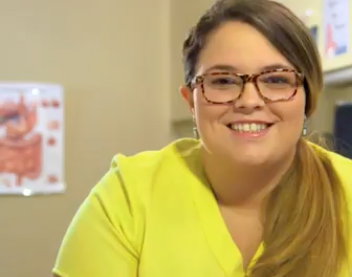How are you dealing with your ulcerative colitis (UC) symptoms?
"I have medications for when my UC symptoms get out of control."
I can handle my day-to-day symptoms. I have medication for flares, but I don't need anything else yet—even if symptoms sometimes interrupt my life.
Are you really in control or are UC symptoms controlling you?
"I can manage my UC symptoms."
I've had UC for a while—I know how to deal with it. I know where all the bathrooms are, and I can skip my trigger foods to avoid or manage a flare.
Is remission your goal?
"My UC symptoms aren't that bad."
By now, I'm used to my UC symptoms. It's normal to miss out on events and plan my day around how often I need the bathroom. If I can manage it, it must not be that serious.
What do you consider "serious" UC?
"I don't need a different treatment yet."
There are ways I can deal with UC symptoms without changing my medication. I can avoid certain foods, long trips, or places without bathrooms. That's enough to keep my UC symptoms under control.
Does managing your UC symptoms keep you from doing the things you love?
These are hypothetical scenarios representative of typical patients with UC.
Is it time to try a different approach to UC?
If you have moderately to severely active UC and are still experiencing symptoms while taking other UC therapies, talk to your doctor to see if a biologic like SIMPONI® is right for you.


Listen to Lindsey, she supports patients with UC being treated with SIMPONI®.
What is ulcerative colitis (UC)?

UC is a chronic immune response disease
That means your immune system is at battle with the cells of your intestines, which leads to uncontrolled inflammation and symptoms.

UC usually starts in the rectum
After starting in the rectum, the disease can advance consistently throughout the entire colon.

UC can cause damage
Without proper treatment, even if you are not experiencing symptoms, UC can cause your intestinal lining to become dry, brittle, and inflamed as the disease progresses. Small sores may develop.

UC is a progressive disease
Most often, the disease can get worse over time without proper treatment.
It's important to find a treatment that can control your symptoms and start to improve the appearance of your intestinal lining.

What causes ulcerative colitis (UC)? Why me?
While the direct cause of UC is unknown, here's what we do know:
- You may be more likely to experience UC if it's part of your family's medical history
- UC symptoms begin when your immune system attacks healthy cells in your intestines for reasons we do not yet understand
- UC affects approximately 700,000 Americans. Your risk is higher if you have a close relative who has UC, such as a parent, sibling, or child
- UC can occur at any age; however, it is more common in people between the ages of 15 and 30 and less common in people between 50 and 70 years of age
How is ulcerative colitis (UC) treated?
Pharmaceuticals
Aminosalicylates (5-ASA, mesalamine)
Immune modifiers (azathioprine, 6-mercaptopurine, others)*
Antibiotics (metronidazole, ampicillin, ciprofloxacin, others)*
Steroids (prednisone, budesonide, others)
Other (JAK inhibitor)
Biologics
SIMPONI® is a biologic. Biologics are medications that are genetically engineered from products of living organisms, such as proteins, genes, or antibodies. They target enzymes and proteins that may cause inflammation. By controlling inflammation in the intestine, biologics can help patients achieve and maintain remission or periods of few or no symptoms. For many patients, biologics are a safe and effective treatment for managing UC, but there are risks that you should discuss with your doctor.

*Not all medications used to treat UC are approved by the US FDA for the treatment of UC.

